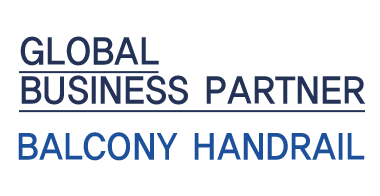Addressing Discrimination Against Individuals with…
페이지 정보
작성일2024.04.20관련링크
본문
Discrimination towards individuals with invisible disabilities remains a pervasive issue in society, often stemming from a lack of knowledge, understanding, and empathy. Unlike visible disabilities, which can be instantly obvious, invisible disabilities similar to persistent diseases, psychological well being situations, and cognitive impairments will not be readily observable to others, resulting in skepticism, disbelief, and misconceptions. In this article, we'll explore the challenges confronted by people with invisible disabilities and techniques to deal with and fight discrimination in numerous contexts.
Challenges Faced by Individuals with Invisible Disabilities
Lack of Recognition and Understanding
One of the primary challenges confronted by people with invisible disabilities is the shortage of recognition and understanding from others. Due to the absence of seen symptoms, people could encounter skepticism, disbelief, or invalidation of their experiences and limitations, each inside interpersonal interactions and institutional settings.
Accessibility Barriers
Individuals with invisible disabilities could face obstacles to accessing lodging, help services, and opportunities because of misconceptions or ignorance about their condition. Inadequate accessibility measures in workplaces, educational institutions, healthcare facilities, and public spaces can further exacerbate disparities and hinder full participation and inclusion.
Addressing Discrimination and Promoting Inclusion
Raising Awareness and Education
Raising awareness about invisible disabilities and the challenges confronted by people living with unseen circumstances is essential for combating discrimination and promoting inclusion. Educational initiatives, public consciousness campaigns, and coaching applications may help dispel myths, challenge stereotypes, and foster empathy and understanding among the many general public, employers, educators, and healthcare suppliers.
Advocating for Accommodations and Support
Advocacy efforts aimed toward selling lodging, assist services, and inclusive insurance policies are important for addressing discrimination in opposition to individuals with invisible disabilities. By advocating for incapacity rights, accessibility standards, and affordable lodging in numerous settings, people and advocacy organizations can work to dismantle systemic limitations and create more inclusive environments for all.
Fostering Empathy and Allyship
Fostering empathy, allyship, and solidarity amongst peers, coworkers, and community members is essential for creating supportive and inclusive environments for people with invisible disabilities. Encouraging open dialogue, energetic listening, and validation of experiences can help cultivate empathy and understanding, leading to higher acceptance and help for people living with unseen challenges.
Conclusion
Discrimination in opposition to individuals with invisible disabilities persists in varied varieties, from skepticism and disbelief to systemic limitations and institutionalized ableism. By raising consciousness, advocating for lodging, and fostering empathy and allyship, society can work towards creating more inclusive, equitable, and accessible environments for individuals with invisible disabilities. Together, we will fight discrimination, promote acceptance, and make positive that everyone, no matter their abilities, is treated with dignity, Totumtech.Com respect, and understanding.
Challenges Faced by Individuals with Invisible Disabilities
Lack of Recognition and Understanding
One of the primary challenges confronted by people with invisible disabilities is the shortage of recognition and understanding from others. Due to the absence of seen symptoms, people could encounter skepticism, disbelief, or invalidation of their experiences and limitations, each inside interpersonal interactions and institutional settings.
Accessibility Barriers
Individuals with invisible disabilities could face obstacles to accessing lodging, help services, and opportunities because of misconceptions or ignorance about their condition. Inadequate accessibility measures in workplaces, educational institutions, healthcare facilities, and public spaces can further exacerbate disparities and hinder full participation and inclusion.
Addressing Discrimination and Promoting Inclusion
Raising Awareness and Education
Raising awareness about invisible disabilities and the challenges confronted by people living with unseen circumstances is essential for combating discrimination and promoting inclusion. Educational initiatives, public consciousness campaigns, and coaching applications may help dispel myths, challenge stereotypes, and foster empathy and understanding among the many general public, employers, educators, and healthcare suppliers.
Advocating for Accommodations and Support
Advocacy efforts aimed toward selling lodging, assist services, and inclusive insurance policies are important for addressing discrimination in opposition to individuals with invisible disabilities. By advocating for incapacity rights, accessibility standards, and affordable lodging in numerous settings, people and advocacy organizations can work to dismantle systemic limitations and create more inclusive environments for all.
Fostering Empathy and Allyship
Fostering empathy, allyship, and solidarity amongst peers, coworkers, and community members is essential for creating supportive and inclusive environments for people with invisible disabilities. Encouraging open dialogue, energetic listening, and validation of experiences can help cultivate empathy and understanding, leading to higher acceptance and help for people living with unseen challenges.
Conclusion
Discrimination in opposition to individuals with invisible disabilities persists in varied varieties, from skepticism and disbelief to systemic limitations and institutionalized ableism. By raising consciousness, advocating for lodging, and fostering empathy and allyship, society can work towards creating more inclusive, equitable, and accessible environments for individuals with invisible disabilities. Together, we will fight discrimination, promote acceptance, and make positive that everyone, no matter their abilities, is treated with dignity, Totumtech.Com respect, and understanding.

